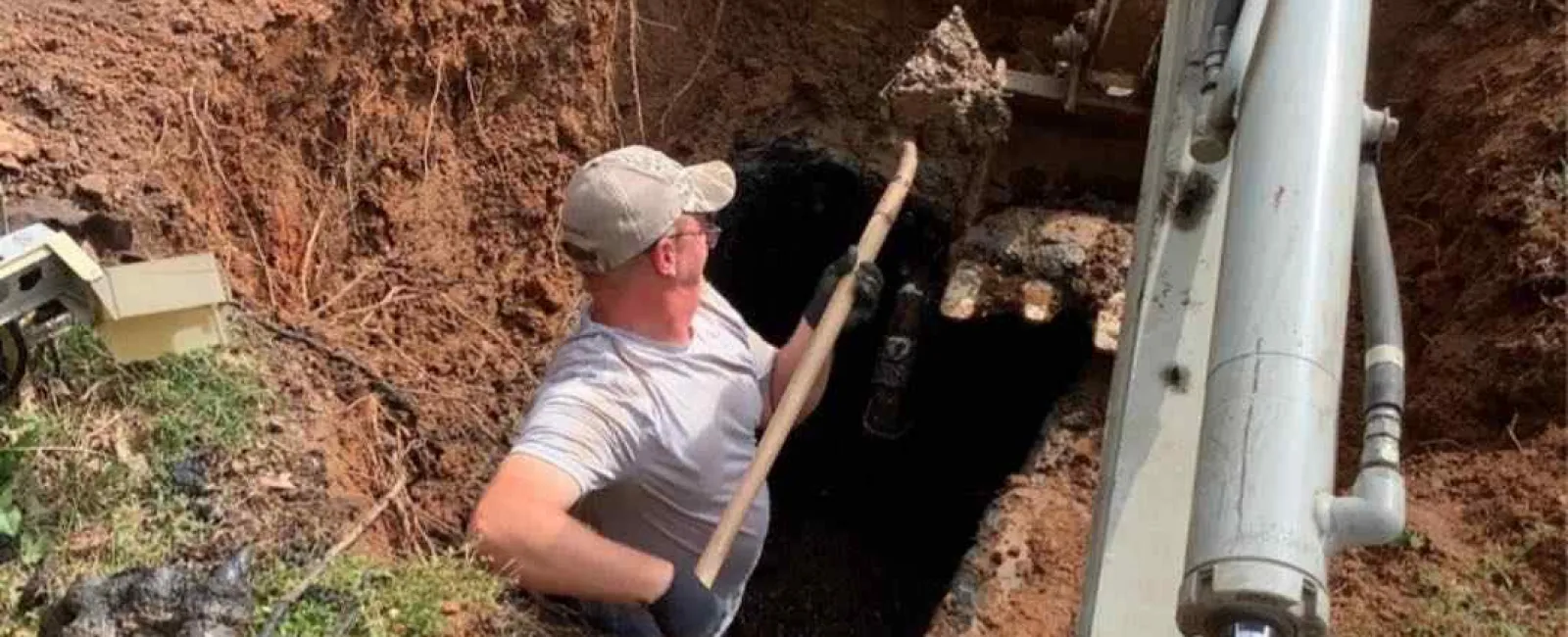It's no secret: septic systems require maintenance to keep them running smoothly. While most of us don't want to think about regular maintenance for anything, putting off septic maintenance can turn into a big, messy problem.

So, what's the takeaway? Setting up a septic system maintenance schedule ensures your system runs as it's supposed to. Not only that, but you'll save thousands of dollars in the long run when you think about the cost of replacing the system entirely.
Here, we'll take you through the best septic tank service schedule to avoid any issues. Whether your tank is big or small, Scorpion Septic can fine-tune your system to work as efficiently as possible. Give us a call and set up your personalized maintenance schedule today!
Daily Septic Maintenance
While you might not think of septic maintenance as an everyday occurrence, the reality is that some daily practices can extend the life of your system for a long time.
- Monitor your water usage - Reducing your overall water usage can greatly reduce the strain put on your septic system through daily use. Taking shorter showers, not over-flushing, and spreading water-intensive cleaning tasks over a few days can have a big impact. If your system becomes overstrained, pipes can break, cracks can form, and flooding can happen.
- Check drains for odors, bubbling sounds, or pooling water - Giving your drainage areas a quick check daily can put you ahead of any potential issues. Smelly drains, weird noises, and pools of clean or dirty water can indicate a blockage or breakage in the system.
- Use septic-safe cleaning products - Many cleaning and chemical products might indicate they're "drain safe," but in reality, they're not good for your septic system. It's important to read labels thoroughly to discover any potential impacts on your system and to use them correctly to avoid further issues.
Taking care of septic system tasks daily, or even bi-daily, can have a dramatic impact on your septic system's health.
Monthly Septic Maintenance
There are some easy things you can incorporate into your monthly cleanings and property inspections that can help your system run smoothly:
- Inspect your effluent filter - Many septic systems have an effluent filter at the outlet that ensures no debris enters the drainfield. Inspecting the effluent filter once a month can give you a good idea of how quickly it gets dirty or clogged. If it is clogged, give it a rinse with some water (check the manufacturer's guidelines first).
- Add a bacterial supplement - If your septic expert recommends doing so, a bacterial supplement is a great way to maintain your septic system's so-called "gut health." Many systems rely on beneficial bacteria to help break down and filter waste. An additive might help generate more beneficial bacteria.
- Keep the drainfield clear - Regular monthly trimmings of grass, shrubs, and dirt can help keep your drainfield clear month-to-month. Also, try not to park over the drainfield or build anything on top of it.
See what we mean? Monthly and seasonal maintenance is so easy, you barely need to think about it.
Yearly Septic Maintenance
While your yearly septic maintenance tasks might be a little more labor-intensive, getting them done is one of the best ways to prolong your system's lifespan:
- Check that any pump alarms are in working order - If your system has any pump alarms, giving them a yearly check will guarantee they go off when they're needed.
- Check the D-Box - Many systems have what's called a D-Box or a Distribution Box that helps efficiently distribute effluent to the drainfield. Having a professional come through quarterly or yearly to flush out the D-Box is one of the best things you can do for your system.
- Schedule an inspection - Having a licensed professional check your system every year is a great way to ensure system health. They can do basically everything listed above and then some, freeing you from worrying about the little things year-to-year.
Yearly maintenance is not only beneficial, it's necessary. Keeping a regular yearly appointment with your septic professional will save you a ton of money in the long run.
Long Term Septic Maintenance
In addition to yearly tasks, septic systems generally need more intensive maintenance every three to five years:
- Pump the septic tank - Septic tanks need to be pumped through every three to five years. However, systems with more use from larger households, bigger families, or commercial entities might need to be pumped yearly or bi-yearly.
- Inspect your drainfield - Give your drainfield (the area where the system drains into your soil for natural filtration) a thorough check every couple of years. The soil me become compacted, disallowing any filtration from occurring. If it's compacted, oversaturated, or contaminated, your drainfield might need a professional hand.
Long-term maintenance is usually what people think of when septic tank maintenance comes to mind. While severely important, daily, weekly, monthly, and yearly maintenance is just as crucial, if not more so.
Contact Scorpion Septic Today!
Setting up regular septic system maintenance with a licensed expert (not just a professional) is literally the best thing you can do to preserve your septic system's health over the years.
If you're looking to establish regular maintenance of septic tank, contact Scorpion Septic Services today! Our experts are ready to provide a free quote for our services and help you nail down a maintenance routine that fits your scheduling needs.
Give us a call and receive your free quote now!

